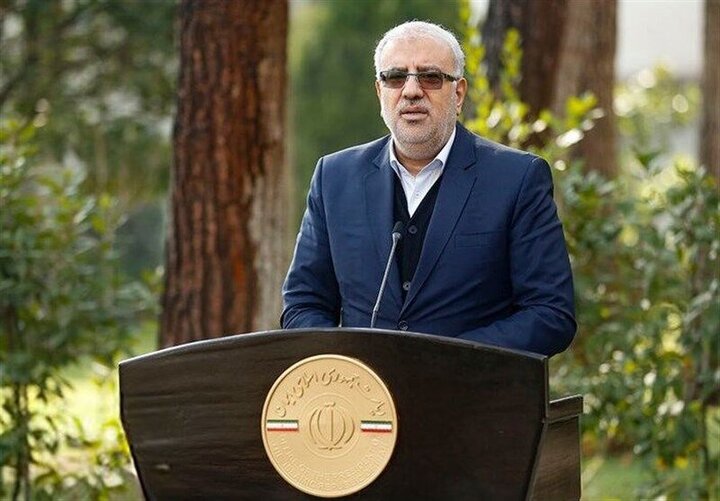Speaking at the last meeting of the 13th administration Cabinet on Wednesday, Javad Owji said that rising refining capacity at petrochemical plants and oil refineries plus the completion of 37 small-scale refining facilities have made gas condensate exports unnecessary because the product is fully processed in the country, creating value-added.
When the 13th administration took office three years ago, more than 87 million barrels of gas condensate and 20 million barrels of heavy and extra-heavy oil were kept in floating storage facilities on waters which could be very challenging in winter with 465 million dollars cost for storage, should the 13th administration had not managed the issue, Minister of Petroleum said.
The 13th administration not only could neutralize the threat of sanctioning gas condensate exports by boosting oil refining and petrochemical capacities for processing but also raised oil production from 2.2 million barrel to 3.6 million barrels per day which was a remarkable move because every additional 100 thousand barrels of oil exports per day increases annual oil revenues by 2.7 billion dollars.
Elsewhere in his remarks, he said that the Oil Ministry was able to complete several important projects over the past three years including the South Pars gas field phase 11 and 14, the second phase of the Abadan oil refinery, and collecting 16 million cubic meters of associated gases per day; all of them were carried out by relying on capabilities of domestic companies and oil industry workforce efforts.
Owji referred to the energy security and collecting oil revenues as two main tasks of the Oil Ministry, noting oil and gas export earnings reached $28.1 billion last year while it stood at just $7.5 billion annually between 2018 and 2020.
Over three past years, "We have achieved other great successes as well including keeping the natural gas and oil products distribution networks safe against three terroristic and cyber-attacks so that the energy security of the country never hurt," he said, adding that “Iran’s oil industry faces its largest economic war in history but it has managed to overcome the threat by relying on its staff efforts and knowledge-based companies’ contribution.”
"We managed to increase refining production capacity from 2.1 million barrels per day to 2.37 million barrels per day, the oil minister said.
The oil and natural gas production rose by 63 percent and 6 percent respectively in the administration of the late Iranian President Ebrahim Raeisi, which drew the attention last year at the Algeria conference in which the gas exporting countries confirmed Iran as the only country with a 5 percent rise in natural gas production against the rising average of 2.5 percent by other gas exporting countries.
He noted that oil refining capacity rose by 270,000 barrels per day, and at the same time selling untreated materials was suspended because crude oil was converted into oil products.
When the 13th administration took office, daily gasoline production stood at 96 million liters, but it has reached 114 million liters per day now, up by 19 percent, Owji said.
According to Owji, the Oil Ministry has increased the natural gas delivery to the industries and power plants from 124 mcm/d and 192 mcm/d to 169 and 300 mcm/d, respectively up by 12 and 20 percent.
About 155 semi-finished projects have come on stream during the period, worth $34 billion, Owji said.
Regarding the oil exports, it should be said that while the volume of oil exports stood at 269 million barrels five years ago, they reached 565 million barrels last year and 208 million barrels during the first four months of the current Iranian calendar year, since 20 March 2024, Minister of Petroleum noted.
MA/SHANA
